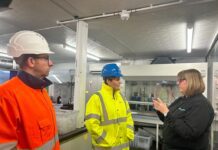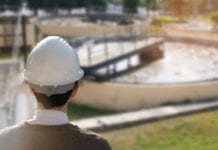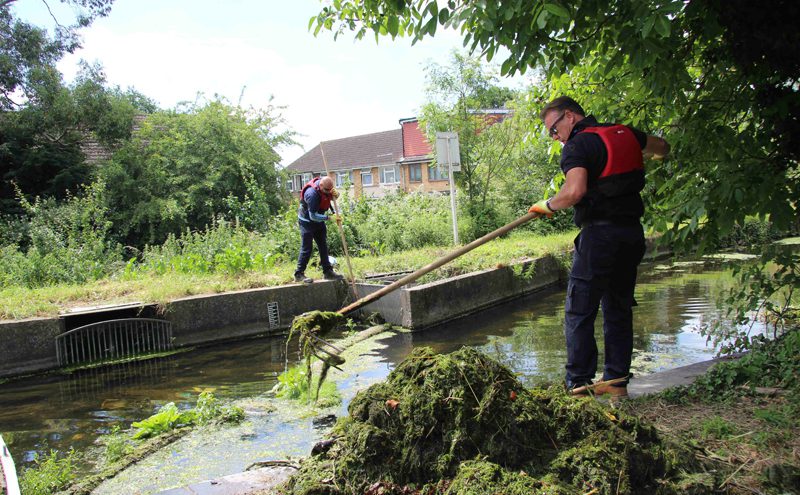
VINCI Facilities has won an innovation award for its work in the Royal Parks using advanced water level monitoring technology and cloud-based data management from OTT Hydromet to improve the management of the Longford River.
The VINCI Facilities Innovation Awards competition takes place every two years covering 12 regions throughout the world. Celebrating innovation and advanced technology, it is one of the ways in which the company recognises and showcases the creativity and entrepreneurial spirit of its c.200,000 staff from around the world.
The UK and Ireland Regional Innovation Awards Ceremony took place in 2017, evaluating 167 projects from which 34 were shortlisted at the Regional Jury in May 2017 and, of those, 12 made it to the award ceremony in London. Five winning entries were selected, including a project conducted by VINCI Facilities working in partnership with the Royal Parks. VINCI Facilities manages around 37,000 assets in the Royal Parks ranging from fountains and statues to special features such as royal memorials in Hyde Park, Richmond Park, Regent’s Park, Kensington Gardens, Greenwich Park, St James’s Park, Bushy Park, Green Park and Brompton cemetery.
This work has been ongoing for over ten years, and the award was given in recognition of the advanced management practices and cost savings that have been implemented on the Longford River – a 12 mile stretch of river which feeds the water features of Bushy Park and Hampton Court Palace, with outlets to the River Thames. Built for King Charles I in 1638/39, the course of the Longford River has been diverted in recent times to accommodate the growth of London Heathrow Airport. The river passes through residential and industrial areas so the maintenance and ongoing management of the river helps to protect local residents from flooding and preserve the ecological status of the river.
In the past, VINCI Facilities has employed 3 staff to continually check the status of the river. “This has involved visual inspection by individuals that had to frequently walk the length of the river,” comments James Lyall, VINCI Facilities’ account manager for the Royal Parks. “They were constantly looking for changes in water levels that could arise from heavy rain, weed growth or from illegal dumping of waste such as mattresses and sofas.”
Building a data archive
Lyall believed that the process could be more efficient and that cost savings could be achieved if his team was able to monitor water levels remotely. He therefore contacted a number of potential technology providers, reviewed the available options, and chose OTT Hydromet as the preferred supplier. “In addition to robust, reliable water level measurement technology, we also needed a system that would provide easy access to data including historical trends, and issue alerts when water levels approach pre-set alarm levels,” James explains. “One of our key requirements was a web-based portal – providing a facility for our staff, our client’s staff and the public.”
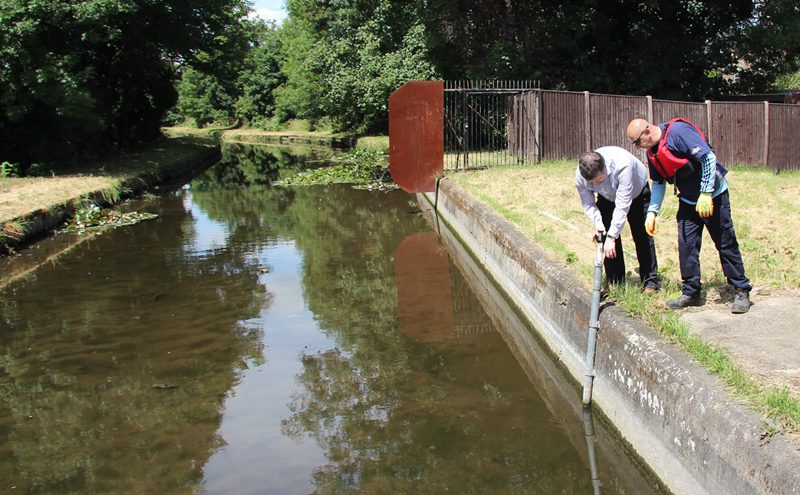
OTT supplied, installed and commissioned the monitoring network, and provides ongoing maintenance with 6-monthly visits. OTT’s Robin Guy has been involved from the beginning. He says: “Much of our equipment is deployed in remote locations, so it is designed to be extremely robust and to operate on very low power. The ecoLog 500, for example, which was chosen for the Longford River, is drift-free and does not require recalibration, so our service engineers are mainly looking for any damage or blockages in the stilling well that might affect the measurements.
“We initially installed 4 monitors as a trial, but the plan is to install more – near Bushy Park and further up the river towards Heathrow airport. The beauty of our data management system ‘Hydromet Cloud,’ is that it is almost infinitely expandable – we have customers with over 100 monitoring ‘nodes’ collecting and viewing data such as water level, water quality, rainfall and even webcams.”
Installation site
Deployed in a secure lockable stilling well which is attached to the bank of the river, the OTT ecoLog 500 combines a ceramic pressure transducer and temperature sensor in a sealed housing with an internal datalogger. Lithium batteries provide power for 3 to 5 years, and a modem with a sim card facilitates GPRS, 3G or 4G communication with Hydromet Cloud.
Hydromet Cloud provides the ability to process, display, and store measurement data from nearly any remote monitoring station via a cloud-based data hosting platform.
Designed for flexibility, the system enables users to create their own dashboard to quickly collate frequently viewed data, which can be displayed as plots, tables or values, and exported in a variety of formats, which enables the analysis of trends. This facility to create a bespoke display is enhanced by a map view with colour-coded map pins (for alarm status), current data values and colour-coded parameter values highlighting alarm status. Alarms are user-defined for values, rate of change etc. and alarm messages are issued automatically by email, text or push notification on a mobile phone. Separate limits can be set for both warning and critical levels, and users can also create alarm distribution groups for notifications.
The Hydromet Cloud mobile app provides a quick and easy opportunity to view the status of an entire network or an individual monitoring station, with options to send/share data directly from a smartphone or tablet (iOS or Android). It is also possible to create and save ‘My Plots’ to quickly recall common plots of one or more parameters graphically illustrating recent data.
“The ability to analyse trends is a major advantage,” James says. “It provides us with a greater understanding of the river’s behaviour under different conditions, and enables us to implement remedial action faster than was previously possible.”
Notification if levels change
Alarms have been set on the Longford River for both high and low water levels. High level alarms enable James’s team to implement measures to prevent the flooding of local residential and industrial properties, and low level alarms help to prevent the loss of water to gravity-fed water features such as the Diana Fountain in Bushy Park. James says: “High water levels across all of the monitors are usually caused by heavy rainfall, but a high level alarm from one monitoring point indicates a localised problem such as a grill blockage. So, the monitoring system helps us to identify the source of the problem much faster.
“Low level alarms can be remedied by requesting more water from Heathrow, but we need to give them plenty of notice, so again, advance warning is a major advantage.”
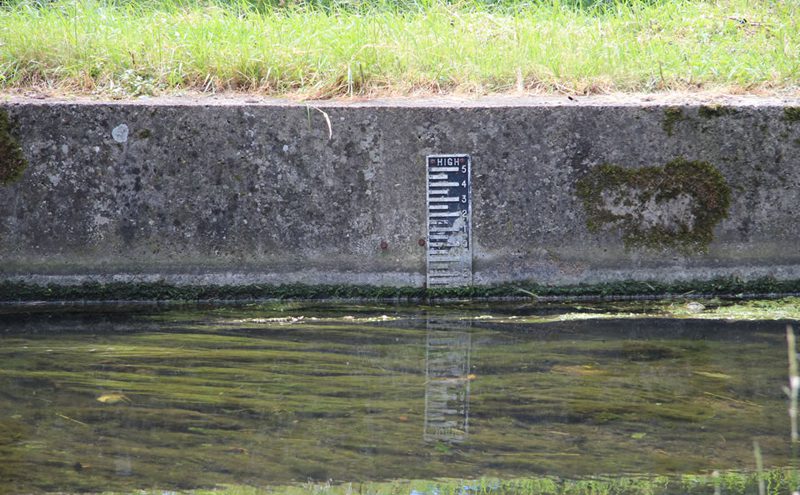
Summarising, James says: “It was great to win the innovation award, but our success is simply a reflection of the benefits that we have managed to achieve for our client. The implementation of a remote river monitoring system has resulted in savings of over £100,000, and this has been used to further improve river management through initiatives such as de-silting, weed removal and other river enhancement measures.”
“This success could not have been achieved without the close working relationship that we established with the Royal Parks and OTT Hydromet.”





